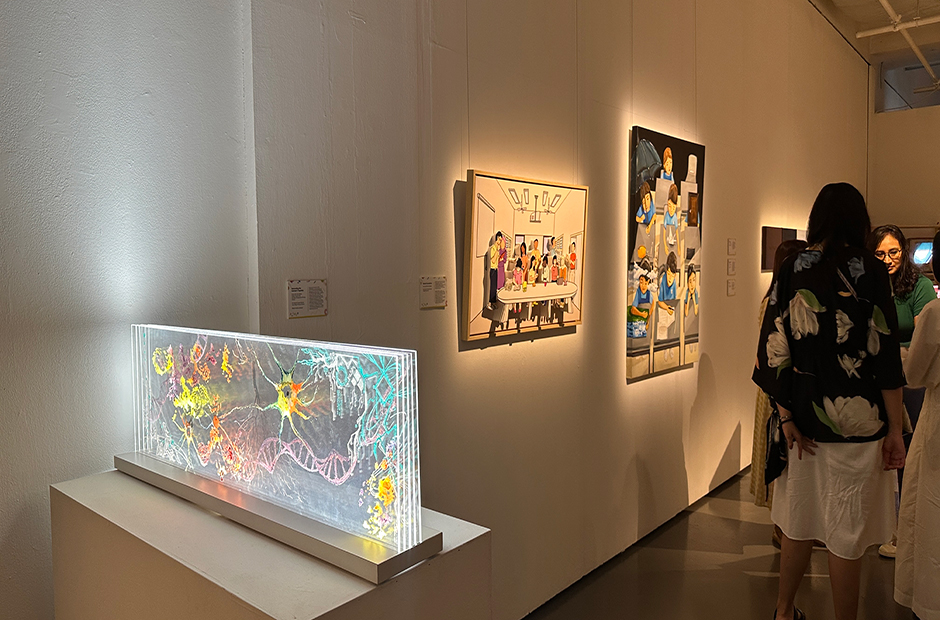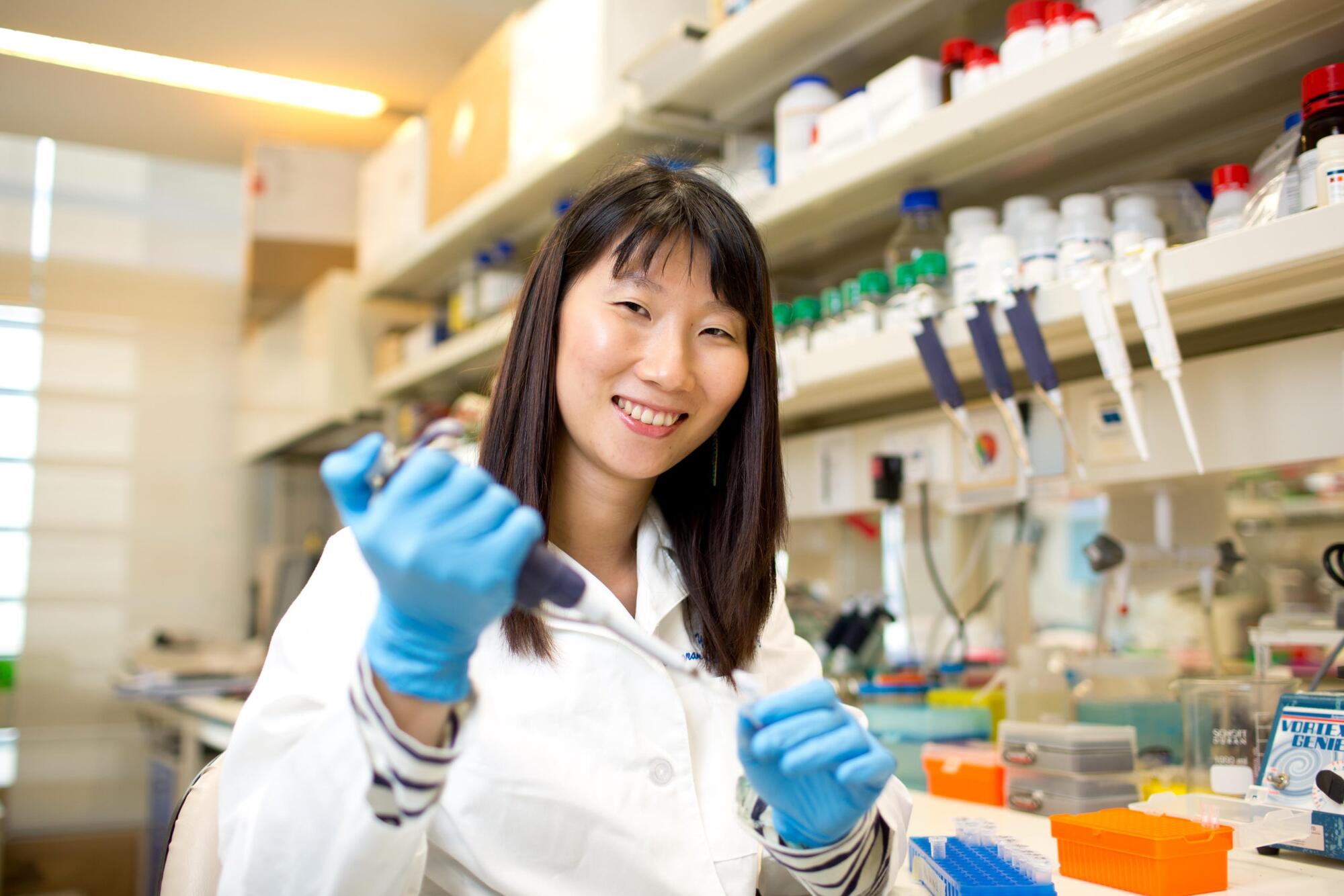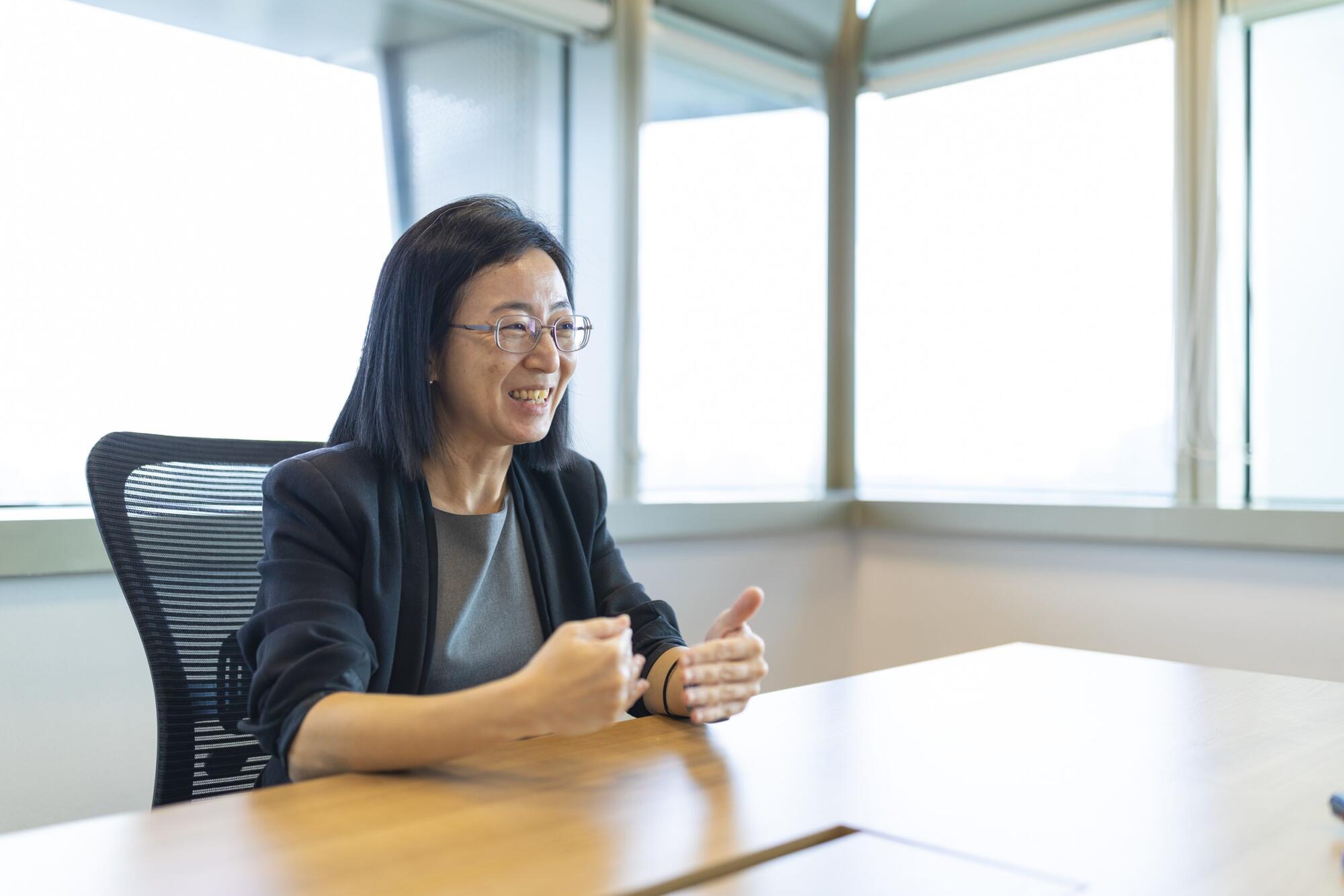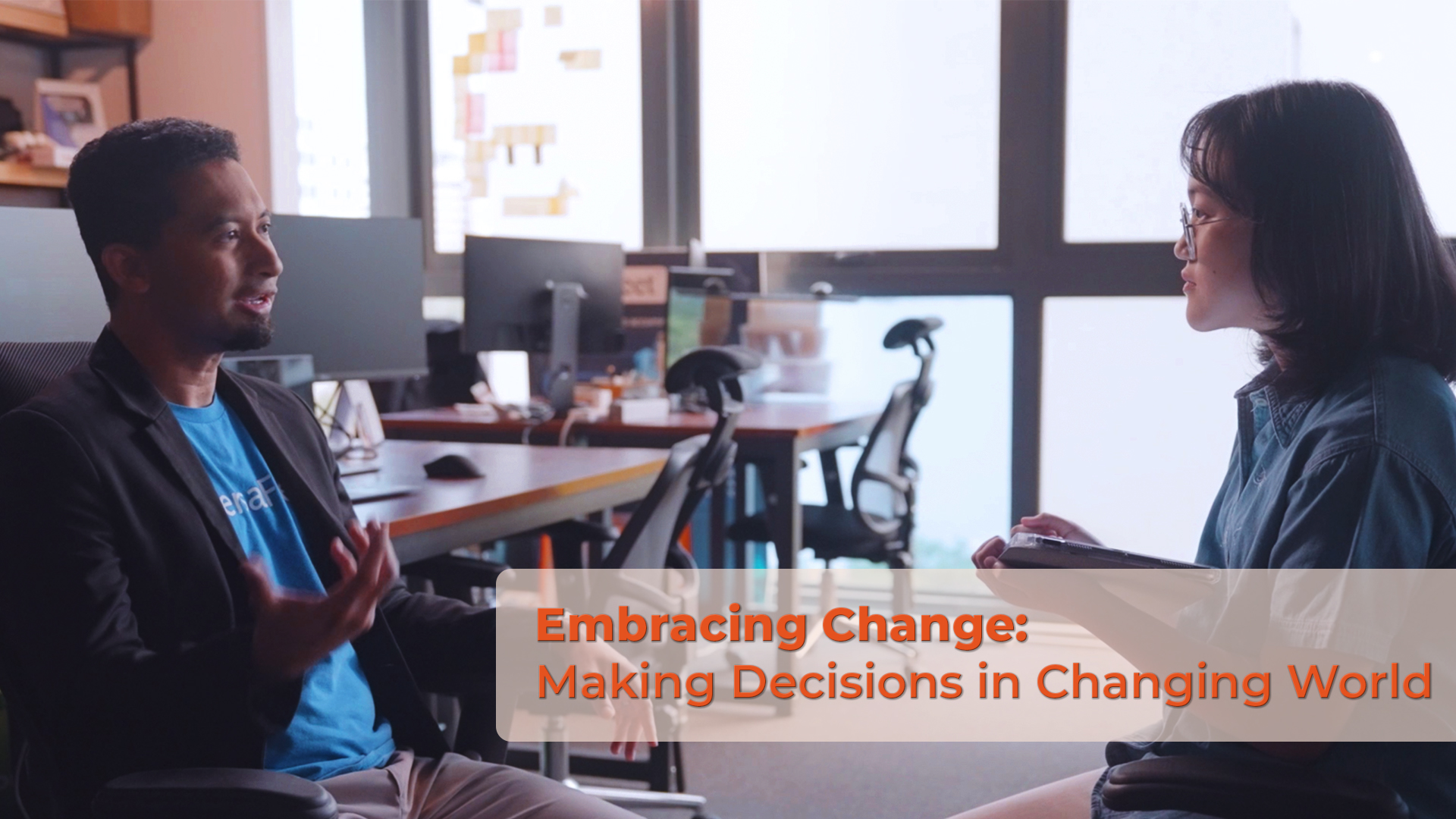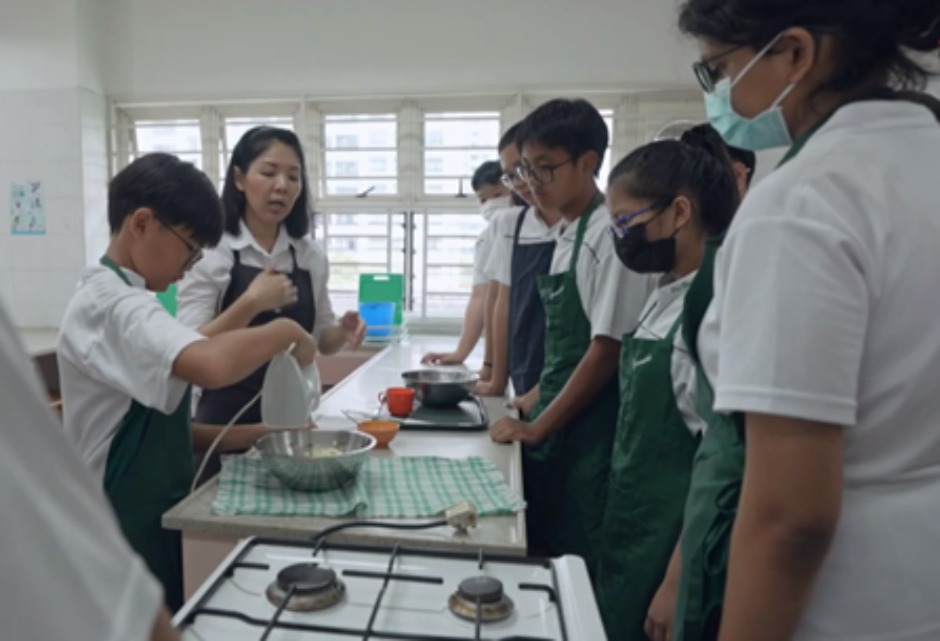What’s got them hooked on defence?
07 Sep 2023
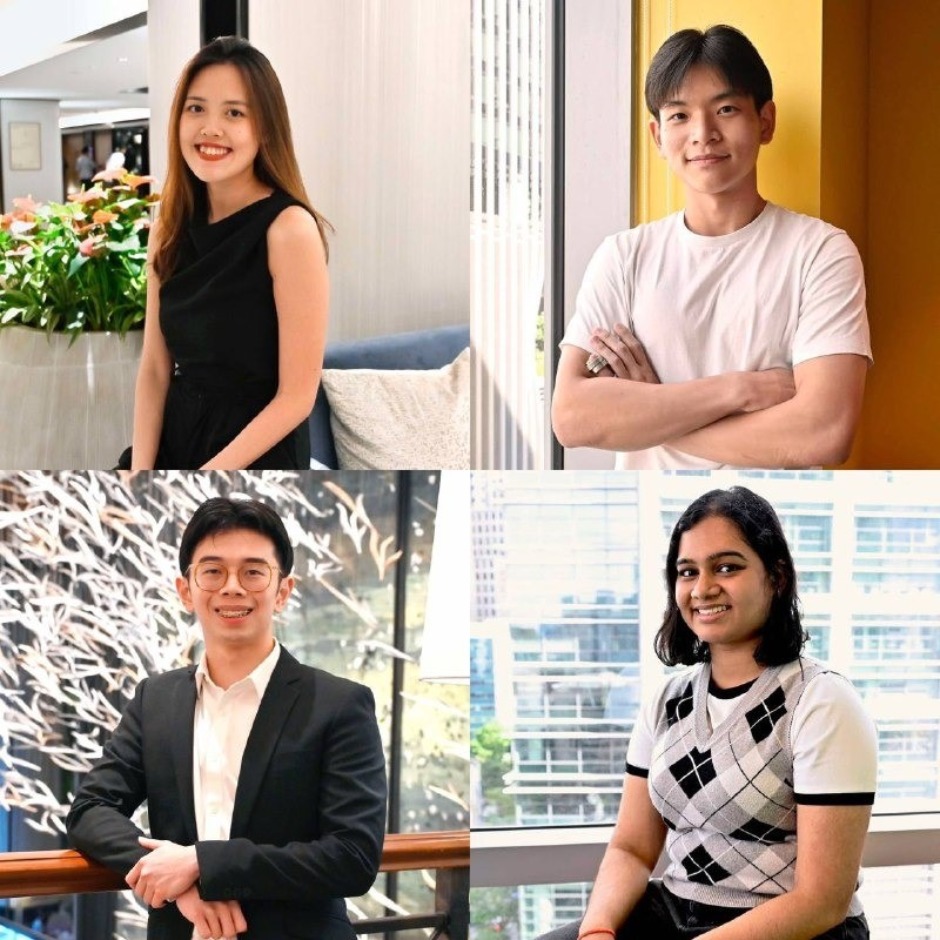
There’s technology and there’s defence technology. Four students on Defence Science and Technology Agency (DSTA) scholarships tell Schoolbag how their school experiences exposed and shaped their passion for this niche branch of STEM.
By Jacquelyn Ng
At this year’s Singapore Defence Technology Summit , we ambushed a 17-year-old student participant to ask what defence technology meant to him and his answer came easily.
“It’s about the tools and techniques to protect a country or organisation from threats and attacks,” said Joshua Tong, a JC1 student from Victoria Junior College. A scholarship holder from the Defence Science and Technology Agency (DSTA), he’s been following developments in this area and is keen to further his studies in ways that would allow him to contribute to Singapore’s defence capabilities.
Apart from Joshua, there were other student participants – Tammi Chia, Neha D/O Ram Singasan, and Daryl Tai – who had been invited to attend the gathering of global thought leaders on defence and security capabilities.
We asked them what had triggered their interest in defence technology, and what role their education experiences, whether at junior college, polytechnic or university, had played in their journey.
“It all began with some computing modules in secondary school”
Joshua Ace Tong Zhi An
JC1, Victoria Junior College
In secondary school, we were exposed to Computing, which included modules like block coding, basic Python and Microbits. After a few lessons, I realised how much I looked forward to these classes, in anticipation of what more I would learn.
I began to spend my free time reading up on coding. I followed many online tutorials to familiarise myself with Python programming. In the midst of my research, I chanced upon topics such as artificial intelligence and the Internet of Things (IoT) – which is about connecting machines, objects and people to the internet to send and receive information quickly.
My teachers realised that I had an interest in these topics, and encouraged me to sign up for the Young Defence Scientist Programme. This was a workshop organised by the Defence Science and Technology Agency (DSTA) and the DSO National Laboratories.
A personal highlight came about at the workshop, when we were considering how evolving technologies can tackle security challenges around the world. It seemed like everything I had been reading up about suddenly came to life! The hands-on activities offered me a glimpse into how my theoretical knowledge could be applied in the world of defence technology.
After my JC education, I hope to develop a strong foundation in computing and engineering.
To me, venturing into defence technology is meaningful as I hope to employ my passion and skills to improve the defence capabilities of Singapore. I want to give back to society, and it is my dream to come up with unique solutions against increasingly sophisticated threats.
“I signed up for a camp, and the magic happened”
Neha D/O Ram Singasan
Year 3, Nanyang Polytechnic
I distinctively remember the moment when I thought, “Hey, maybe I could consider a career opportunity in tech.”
It was during a youth cyber exploration camp, organised by Nanyang Polytechnic and the Cyber Security Agency of Singapore (CSA). My teacher had encouraged me to sign up for it. I was in Secondary 3.
Part of the camp involved a Capture-the-Flag (CTF) tournament. It was exhilarating. This competition is like a digital treasure hunt, where we have to solve computer-related challenges to find hidden ‘flags’ and earn points.
In the days leading up to this tournament, we were introduced to concepts like cryptography, which is the process of hiding or coding information so only an intended recipient can read it. It uses algorithms and mathematical concepts to transform messages into difficult-to-decipher codes.
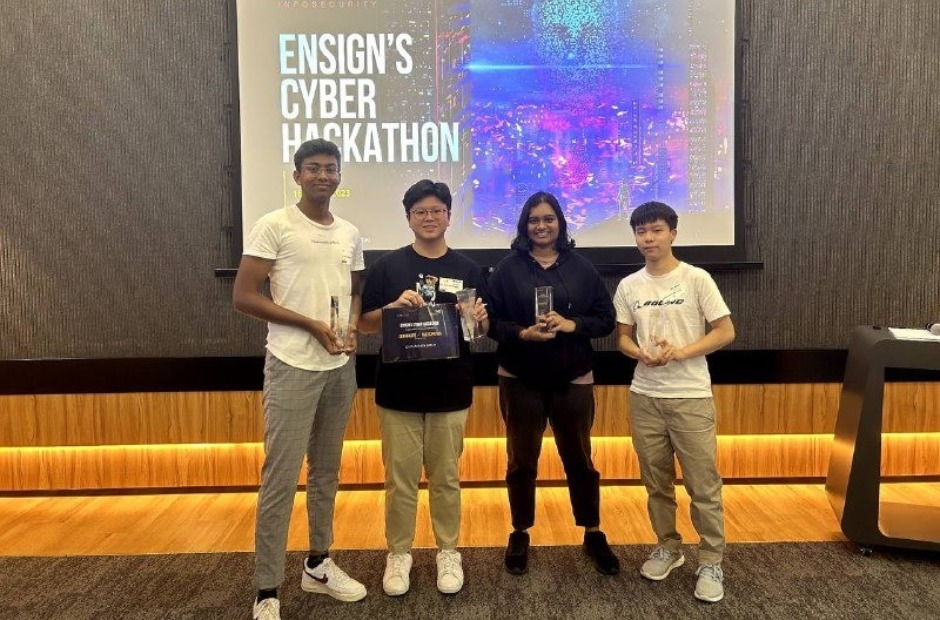
Neha (second from right) participating in a hackathon.
The camp piqued my interest in tech, and more specifically in cybersecurity. I remember being shocked by the sheer scale and cost of cyber attacks globally. For these reasons, I chose to pursue a diploma in cybersecurity and digital forensics in Polytechnic.
In Polytechnic, the modules on the various attack methodologies and defences currently utilised to deter cyberattacks greatly interested me. I also had more opportunities to take part in code clinics, hackathons and – you guessed it – more CTF tournaments.
These programmes and workshops allowed me to apply my skills and network with others who share this interest. For instance, during a cyber hackathon, I was grouped with students from various Junior Colleges and polytechnics. We came up with a project idea and aligned the development roles according to our skillsets. This also allowed us to learn from each other.
My internship at DSTA’s cybersecurity programme centre was for six months. I was involved in projects like exploring new and emerging technology to safeguard Singapore’s digital systems. These experiences helped me gain new insights into the industry. It made me even more excited to keep learning and growing in this area.
“I followed the topics I was interested in and it led me to defence tech”
Tammi Chia
Bachelor of Science in Business Analytics, NUS
If you were to ask me what my favourite subject is, I might not be able to give you a single answer.
In secondary school, I was interested in Mathematics. In JC, I added Physics and Economics to that list of interests. When it came to choosing an undergraduate degree, I was confused about the path to pursue.
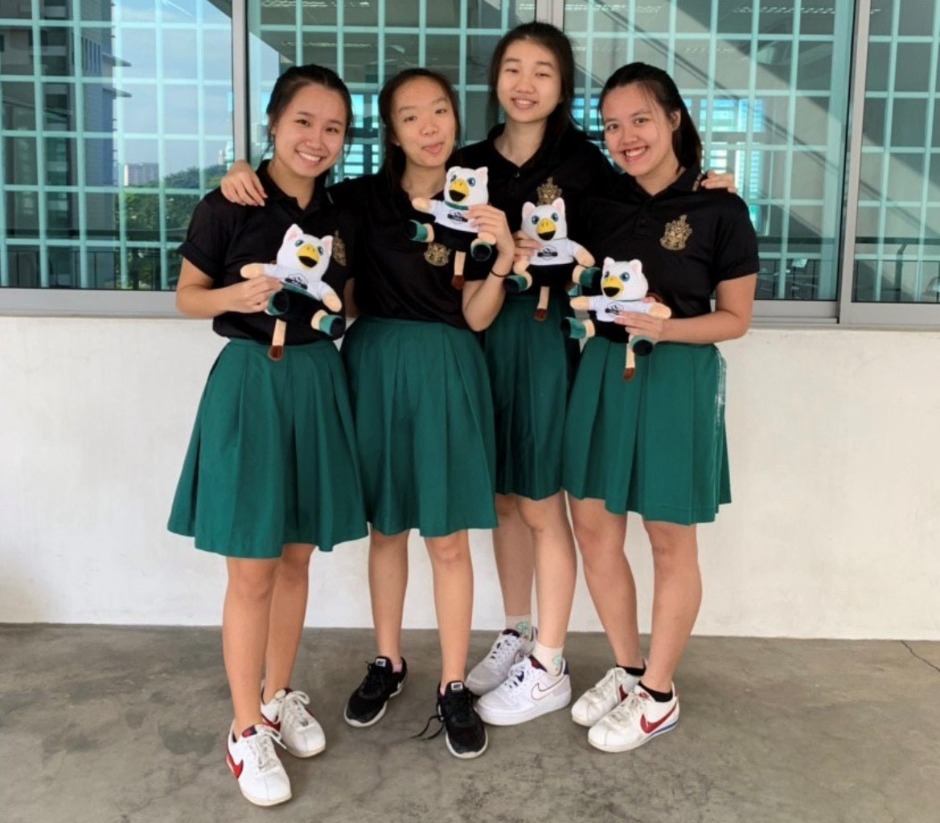
Tammi (far right) during her JC days.
After speaking to my teachers, I realised that there were a few things in common among the subjects I liked. I enjoy working with numbers, and understanding how they could be used to model real-world phenomena.
I opted for a Business Analytics degree at the NUS School of Computing, where we rely heavily on data to solve complex problems. During a module on Machine Learning, I had a revelation about what I could pursue as a career.
The portion of the module that stood out to me was about anomaly detection in cybersecurity. I was struck by the intensity and sophistication of the cybersecurity threats. We also had a chance to understand Singapore’s own set of cybersecurity solutions.
That semester, I decided on two things: I would like to contribute to Singapore’s defence against cyber threats. To set me on that path, I would need to deepen my tech skills.
For the latter, I signed up for courses and took modules to deepen my skills in data mining and predictive modelling. My teachers also encouraged me to participate in hackathons, where we raced against other teams to solve a tech ‘problem’, such as designing a new operating system. Meeting fellow tech-enthusiasts further affirmed my passion for data science.
Most memorably, I had the opportunity to intern at DSTA’s Enterprise IT Programme Centre. My team explored how we could harness tech to deliver digital solutions. We hope that these solutions will streamline business processes and operations for the company.
These experiences helped me explore my interests. It was also useful as I figured out the types of career pathways that excite me, and thought about my next steps. After graduation, my goal is to contribute to the national effort of preparing society for the technological transition!
“I continued to grow my interest in planes, an interest I’ve had since I was a boy”
Daryl Tai
Bachelor of Engineering in Aerospace Engineering, NTU
Planes fascinate me.
It’s been an interest since young. I spent a lot of time reading books and watching documentaries on aerospace vehicles – airplanes, helicopters, missiles, rockets, and space vehicles. I devoured information on how the vehicles were developed, to mission histories of different vehicles.
My Physics teacher in secondary school realised my interest, and introduced me to the Singapore Space Challenge.
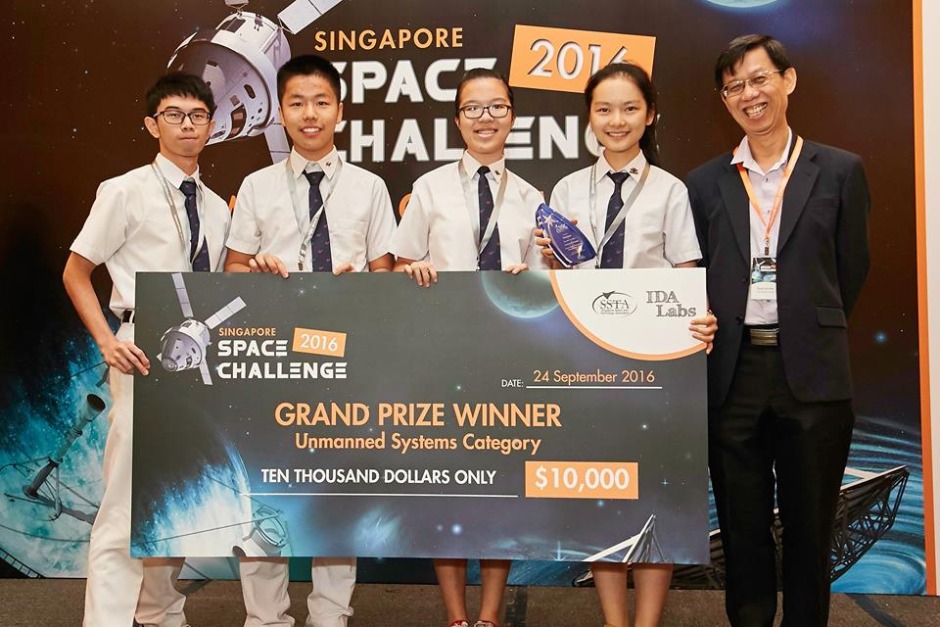
Daryl (far left) with his team during the Singapore Space Challenge 2016.
We had to design complex space-related and advanced-technology projects that are largely graded on creative engineering. The competition helped me see how my interests could be applied to real challenges, and I was inspired to keep learning.
It was no surprise that I chose to deepen my knowledge of aerospace engineering in university project work and participation in programmes like the Young Defence Scientist Programme (YDSP).
My university presented many avenues, like the YDSP, to develop my interest in this area. I enjoy these programmes as they hone my technical skills. It is also when concepts like propulsion, avionics and material composites come alive for me.
My favourite part? The mentorship experience with defence engineers, software developers, cybersecurity experts and research scientists. Simply chatting with them and hearing their stories made me more excited to contribute to the field of defence technology.
During my internship at DSTA’s Air Systems Programme Centre, I learnt about aircraft designs as part of military technology development. I could design and 3D-print several of my aircraft designs to test their structural performance. These were invaluable experiences because I grew to understand the impact of such decisions on weight savings, maintenance and assembly time.
We are on Telegram! Subscribe to our channel: https://t.me/schoolbag_edu_sg

